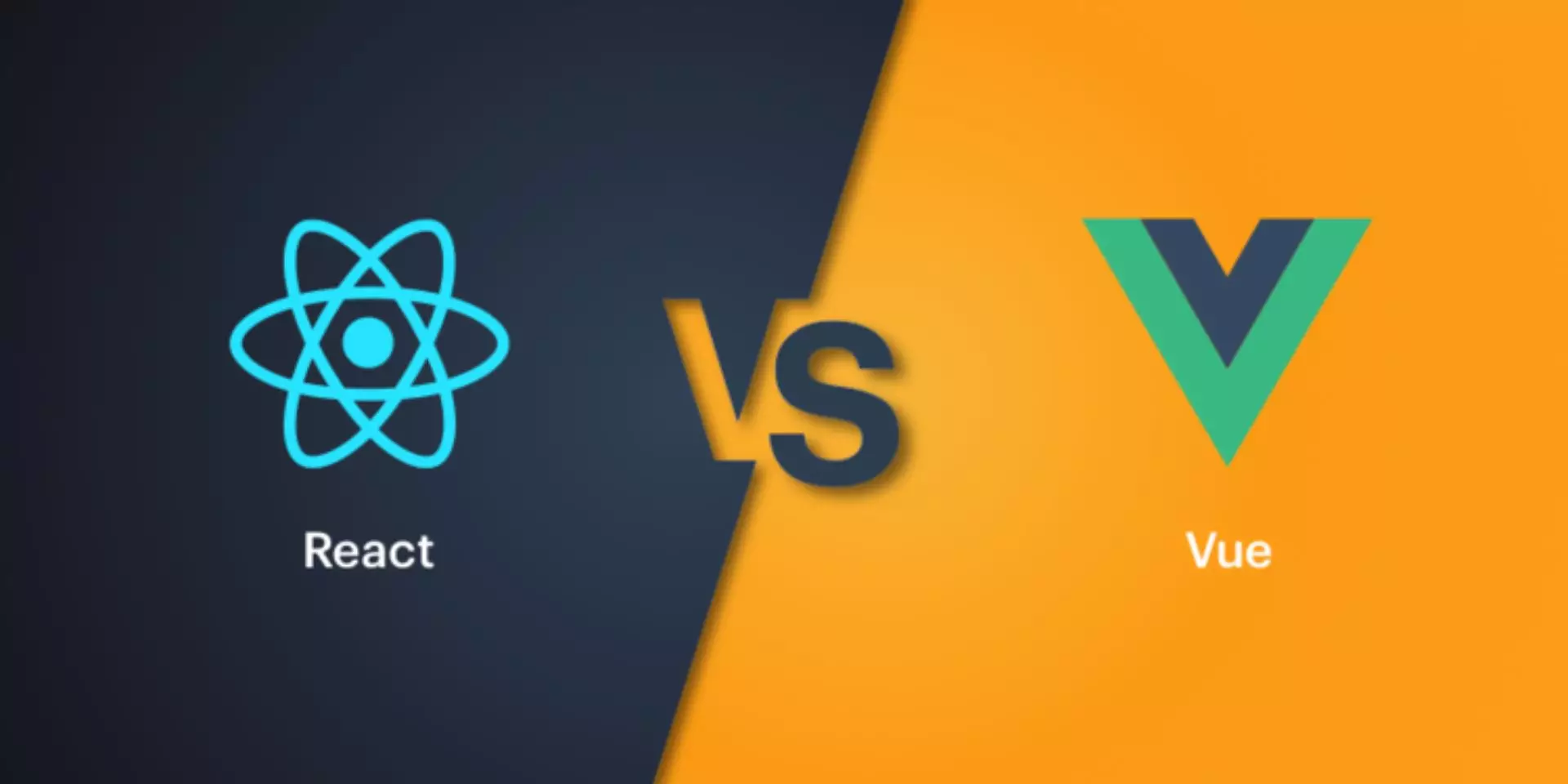
VueJS vs ReactJS – Who is Leading the Race?
VueJS vs ReactJS, they are both JavaScript-based toolkit ecosystems, have gained popularity in web app development. Additionally, they are prominent to developers due to their capacity to build dynamic user interfaces. Amid the technology race in 2021, the outstanding performance of these two open-source JavaScript frameworks has raised a debate about who leads the race – VueJS vs ReactJS. There is no absolute winner, but we can give them credit for what they do better. As a result, we can understand when we should use Vue or React.
From my perspective, ReactJS has a step forward Vue since many big corporations are using React-based solutions, and additionally, it possesses React Native assisting versatile mobile application development. However, Vue has had outstandingly fast development recently. Under the circumstances, VueJS is undoubtedly a better choice than ReactJS. Indeed, even having in-depth knowledge about both of them, I always prefer VueJS for small and medium-sized projects. On the other hand, ReactJS is the best solution for sophisticated ones. Honestly, it’s not that ReactJS is superior to Vue. ReactJS’s one-way binding approach makes complex applications easier and simpler to deploy, handle, and test. ReactJS gives me a feeling of having all control rights; whereas, I rely more on Vue’s magic when using it.
Backgrounds
We must gain a solid knowledge foundation before diving into the detail-oriented level.
Definition
Vue, first released in 2014, is an open-source front-end JavaScript progressive framework. Developed and named by Evan You, a former developer at Google, VueJS has been used worldwide as one of the best options for building intuitive interfaces and SPAs (Single-page applications). It allows for HTML expansion with directives via a gradually versatile design. Additionally, VueJS also has advanced features required for complex applications such as routing, state management, and build tooling. Furthermore, it has a huge community and is a base to build some super brand names, such as Grammarly, Nintendo, BuzzFeed, etc.
Learn more about our VueJS Development Services.
React, initially released in 2013, is not technically a framework, but it is an open-source front-end JavaScript library. Like VueJS, React is a valuable tool for developing web apps with robust and interactive features via UI components. Additionally, it is used for complex logic SPAs and mobile app development. React, on the other hand, is solely concerned with state management and rendering that information to the DOM, so constructing React apps frequently necessitates the usage of extra frameworks for routing and client-side functionality.
Learn more about our ReactJS Development Services.
Comparison of VueJS vs ReactJS
I bet that you may come across some available online blogs about VueJS .vs ReactJS. However, I still pull out some notable similarities and differences between them.
Vue | React | ||||
Vue & React Similarities | |||||
|---|---|---|---|---|---|
| |||||
Vue .vs React – The Differences | |||||
| Syntax |
|
| |||
| Talent Resources |
|
| |||
| DOM Binding |
|
| |||
| Size |
|
| |||
| Developer Mindset |
|
| |||
| Mobile Native Support |
|
| |||
Advantages of the Vuejs .vs React.js Competition
VueJS over Reactjs
Size
Vue, a robust and valuable framework, is well-known for its small size – about 20 kilobytes. It has become outstanding among various other frameworks and developers’ favorite tools.
Simplicity
Initially, VueJS was created to simplify the writing process. In fact, it requires less effort and cost, but it provides excellent collaboration with components and stores all codes, including HTML, CSS, and JavaScript, as a single-file component.
Integration
Besides the size, the ease of integration makes it one of the best choices for web application development, which gets along well with various existing web applications. Precisely, VueJS may be integrated with other frameworks, allowing developers to modify the projects according to given requirements. Additionally, it can likewise deal with HTML blocks due to MVVM engineering permitting two-way correspondence.
User-Friendly
Thanks to its easy learning curve, it is beneficial to new developers. To clarify, it only requires a basic knowledge of HTML, JavaScript, and CSS. It’s due to Vuejs’ two-way binding magic inside and it’s a big advantage of Vuejs in the Vuejs vs Reactjs competition.
Customization
VueJS is a free and accessible tool that benefits custom app development with various functions. In fact, it allows developers to name features as they want and is well-tailored for individual users’ requirements.
Few Restrictions
The VueJS community is thriving due to its outstanding accessibility, flexibility, and few restrictions. With a focus on interface performance, developers can leverage the core and libraries to develop and solve problems in the most creative ways. In a word, it encourages innovation that transcends all traditional thoughts.
Good Documentation
Having good documentation, it opts for all options, the best corresponding samples, a simple introductory guide, and a good API overview. With Vue, the document is updated and revised frequently. Furthermore, it is the most comprehensive documentation for the language type.
ReactJS over VueJS
Intuitive
ReactJS allows rapid development with great intuitive and interactively UI components. Additionally, it provides quality assurance and saves time for both developers and customers.
Declarative
With React, it permits programmed altogether significant information changes in chosen portions of UIs. Thanks to automatic alterations, there is no further need for a manual UI upgrade.
Reusable Components
React-based web applications consist of various components that have their own logic and controls and are liable for a small and reusable piece of HTML code. The reusable code assists with making your applications simpler to create and maintain. Furthermore, it enables sophisticated applications to be constructed using simple building parts. Besides, utilizing virtual DOM, data can be filled in HTML DOM with individual changes rather than whole reloading without fail.
Component Supports
As an ideal combination of JavaScript and HTML labels, it eases the challenge of dealing with a massive quantity of data, including the document object model, and helps to conclude which component needs to be changed to pursue the exact outcomes.
SEO Friendly
Unlike traditional JavaScript frameworks, ReactJS is friendly to SEO since it allows search engines to generate and crawl data. React stands apart from the crowd on account of running on the server and being delivered, then re-visiting the program through virtual DOM. But, this is not a large leading point of Reactjs vs Vuejs because Vuejs is also equipped with SEO-friendly weapons.
JavaScript Library
ReactJS is preferred by web developers on account of its extensive JavaScript Library. In fact, the library consists of various features that facilitate the change of the HTML elements into required functions and make it easy to comprehend.
Proficient Data Binding
ReactJS has single-direction data binding that permits individuals to monitor changes to specific information sections as a symbol of simplicity.
Conclusion
Briefly, React is notable among developers with extraordinary adaptability and is suitable for complex and enterprise-level applications. On the other hand, Vue is thriving fast due to its convenience, good documentation, and steady reception capabilities. However, it is difficult to award VueJS over ReactJS and vice versa. In fact, each has its best environment to deliver outstanding performance. Therefore, we must identify our needs, budgets, and criteria before using Vue or React.
Eventually, I love this Vuejs vs Reactjs competition because it brings a lot of benefits to web-based software development.









